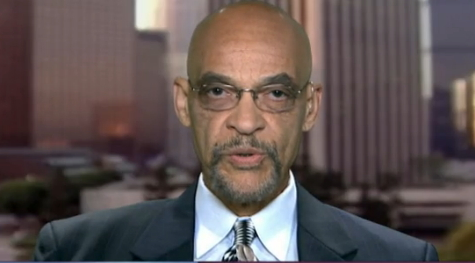Earl Ofari Hutchinson
Trump seemingly couldn’t make up his mind whether he wanted his two GOP Senate contenders to win the Georgia Senate seats or not. He badmouthed the GOP governor. He took a shot at one of the GOP contenders as not the best pick, since he didn’t pick her. He railed that because he couldn’t get the GOP officials to play along with him and scrap the vote and declare him the winner of the Georgia vote, then GOP voters should boycott the Senate contest. Then he deftly pivoted in a disjointed rally in Georgia for the GOP Senate candidates and took it all back.
Like everyone else, Trump knows the GOP’s iron-clad control of the Senate rides in grabbing the two seats. The GOP leaders for their part have ignored Trump’s bluster and bet the bank on winning big in Georgia. Money is no object, it will spend whatever it takes, and the party has flooded the state with armies of GOP polling experts, volunteers, and party workers.
The Georgia election battle underscores why the Senate, not the House, or even the White House, is the real name of the game in American politics. Senate Majority Leader Mitch McConnell is the de facto shadow boss of American government. He heads a Senate that’s been carefully and deliberately crafted as a firewall against a Democratic president. It’s a GOP controlled Senate in which its majority leadership can repeatedly delay, dither, obstruct, gut and torpedo initiatives and legislation of a Democratic president from the budget to appointments at nearly all levels.
The Founding Fathers were scared stiff of the prospect of government being run by “the mob.” The mob defined by them as the supposed unwashed, unvarnished, ill-informed public. It would be government run amok. The Senate was their ultimate check on that. The Senate is the ultimate in an elite, upper crust gentleman’s political body. Senators get six-year terms. In the early years they were the landed and propertied gentry. As an added safeguard they were chosen not by direct vote, but by state legislatures. Though that changed in 1924, it still took lots of money, connections, and the party bosses’ imprimatur to have a shot at a seat.
The Senate is loaded with a labyrinth of arcane procedures and rules. This ensures that only the most moderate, finely honed, and compromised legislation is passed. The Senate’s dominance doesn’t end with fine-tuned legislation, but appointments and confirmations.
It is the sole determiner of who sits on the high court, the lower court benches and who bags key spots in federal agencies. These are all top-grade posts that initiate, make, and implement crucial policy decisions after many congresspersons are long gone. The Senate Majority Leader has virtually dictatorial control over which of the president’s nominees are put to a confirmation vote.
The devastating result of that power was on full brute and naked display with the dozens of judicial and agency posts that were endlessly delayed, or outright sabotaged by the GOP controlled Senate from Attorney General Loretta Lynch to the absolute refusal of McConnell to consider any SCOTUS nominee who Obama proposed to replace Scalia.
The scuttle of Merrick Garland to the bench was a textbook example of a McConnell controlled Senates power to say no to a President and make it stick. McConnell used his hammer lock on the nomination process to saber rattle Obama about his choice of judges and agency picks. In effect he told him that if his Senate didn’t like one of his picks deemed too liberal — a minority or woman, or too much of a social activist — then dump them and go get someone else whom they deem conservative, and conciliatory in how they’d run the agency or rule on court cases.
McConnell will use the same template with Biden. In fact, he already has. He’s already dropped strong hints that some of Biden’s early picks are questionable. Again, that means they’re too liberal for his taste. The warning is clear: drop them, or else. The or else is the real threat that they won’t be confirmed.
McConnell and GOP Senate leaders understand this little shell game can be played by two. When Harry Reid (D-NV) became Senate Majority Leader in January of 2007 he played hard ball with several then President George W. Bush’s judicial nominees and delayed hearings.
A Democratic Senate Majority Leader would completely change the game. Everything from Biden’s cabinet, agency, and judicial picks would sail through. Everything in Biden’s agenda from expanding the Affordable Health Care Act to comprehensive immigration reform would have a real shot at passage.
So, Trump’s initial talk about blowing off a Georgia vote, and name calling of Georgia’s top GOP officials was like much else with Trump, pure gas bag hot air. McConnell and the GOP know this. They know that the Senate is the real name of the game, and they intend to do any and everything to keep the game in their hands.
Earl Ofari Hutchinson is an author and political analyst. He is the author of What’s Right and Wrong with The Electoral College (Middle Passage Press). He is a weekly co-host of the Al Sharpton Show on Radio One. He is the host of the weekly Hutchinson Report on KPFK 90.7 FM Los Angeles.


Very informing and concise.
Very informing and concise.